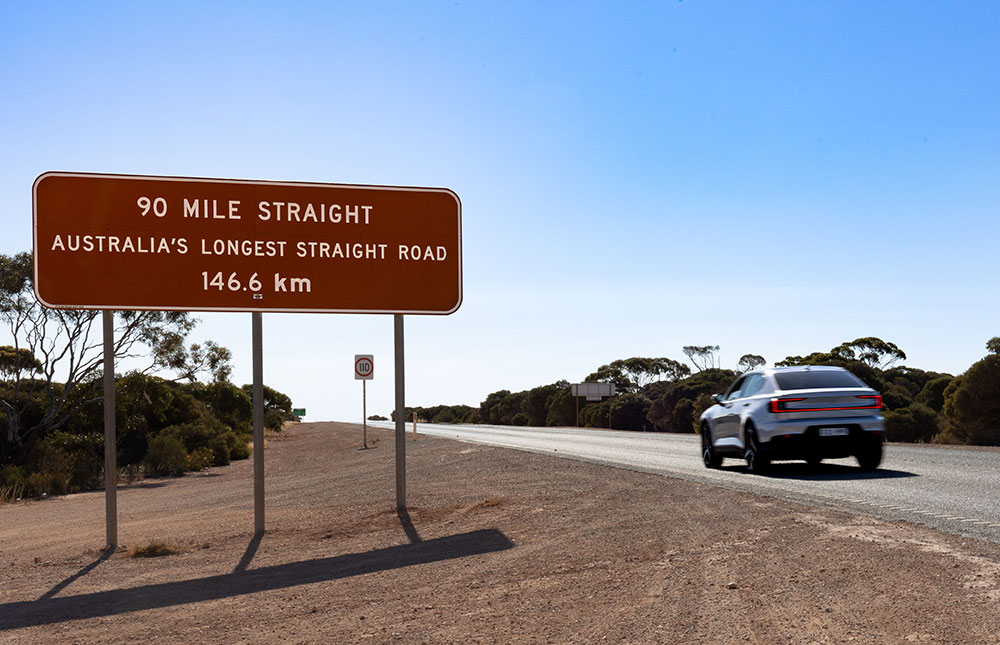Fried Chips for Fuel

The BiØfil fast-charging system is the brainchild of retired engineer, Jon Edwards, who identified that the proposed electric vehicle highway in Western Australia left a gap on the Nullarbor, and with it, the ability to drive an electric vehicle (EV) around Australia.
A road trip across the Nullarbor has been a rite of passage for generations of Australians, but until now electric vehicle (EV) drivers have been unable to tackle the journey due to a lack of charging infrastructure.
Located at the Caiguna Roadhouse the new BiØfil fast-charging point is positioned 370km east of Norsemen and 370km west of the South Australian border, effectively plugging the EV range gap between Western Australia and South Australia, enabling EV owners to traverse the Nullarbor.
The fully off-grid and self-contained BiØfil fast chargers use solar power and waste oil from the Caiguna Roadhouse kitchen, extracting energy from the waste oil using a generator, with the process claimed to be entirely net-zero, with no incremental impact on the environment.
This is because the vegetable oil for the fryers comes from seed crops, such as canola and sunflower, which absorb CO2 and sunlight, and the CO2 produced to power the charge system is the equivalent to the CO2 absorbed.
Jon Edwards, inventor of BiØfil, said: “The cost of installing an equivalent solar-powered EV fast charger is over five times the cost of building the BiØfil fast charging unit. Solar energy would not have been economically feasible for such a low traffic location, making BiØfil the environmentally friendly interim solution for EVs driving across the Nullarbor right now.”
A Polestar 2 was one of the first EVs to trial the new system, powering up at the BiØfil fast charger en-route to Perth. The premium Swedish electric vehicle brand is set to launch in Australia in February with a model range priced from
$59,900 and a claimed maximum range of 540km on the long-range variant.
“Polestar is thrilled to share its passion for innovation and sustainability with visionaries like Jon Edwards,” said Samantha Johnson, managing director of Polestar Australia.
“To turn a waste product into a CO2-neutral charging solution, which connects Australian EV owners from the east with the west, is the sort of ingenuity that has led to so many Australian innovations.”
Related topics
Things to note
The information in this article has been prepared for general information purposes only and is not intended as legal advice or specific advice to any particular person. Any advice contained in the document is general advice, not intended as legal advice or professional advice and does not take into account any person’s particular circumstances. Before acting on anything based on this advice you should consider its appropriateness to you, having regard to your objectives and needs.
Insurance Products (excluding Travel Insurance) are issued by RACQ Insurance Limited ABN 50 009 704 152 (RACQI) and arranged by RACQ Distribution Services Pty Ltd (RDS) ABN 35 116 361 650, AFSL 567130 and RDS' authorised representatives (including RACQ Operations Pty Ltd ABN 80 009 663 414, AR No. 234978 (RACQO)). Conditions, limits and exclusions apply.
Any advice provided by RDS and RACQO is general advice only and does not take into account your personal objectives, financial situation or needs and you will need to consider whether the advice is appropriate for you. Read the Product Disclosure Statement (PDS) before making a purchase decision on the product. You can also access our Target Market Determinations on this website.
RDS receives a commission from RACQI for the policies it arranges. RACQO receives fees paid for services it provides to RDS. Further details about remuneration are available on request prior to purchasing.
Banking and loan products issued by Members Banking Group Limited ABN 83 087 651 054 AFSL/Australian credit licence 241195 trading as RACQ Bank. Terms, conditions, fees, charges and lending policies apply. This is general advice only and may not be right for you. This information does not take your personal objectives, circumstances or needs into account. Read the disclosure documents for your selected product or service, including the Financial Services Guide and the Terms and Conditions, and consider if appropriate for you before deciding.
Except for RACQ Bank, any RACQ entity referred to on this page is not an authorised deposit-taking institution for the purposes of the Banking Act 1959 (Cth). That entity’s obligations do not represent deposits or other liabilities of RACQ Bank. RACQ Bank does not guarantee or otherwise provide assurance in respect of the obligations of that entity, unless noted otherwise.
RACQ Bank subscribes to the Customer Owned Banking Code of Practice which establishes higher standards than the law requires. The Code reflects modern consumer expectations and developments in approaches to issues such as consumer vulnerability, guarantors, and supporting customers through financial hardship. Please read our Customer Owned Banking Code of Practice page for more information.
RACQ Operations Pty Ltd (ABN 80 009 663 414 AR 000234978) and Members Travel Group Pty Ltd (ABN 45 144 538 803 AR 000432492) are acting as an Authorised Representative of the issuer of the insurance, Tokio Marine & Nichido Fire Insurance Co., Ltd. (ABN 80 000 438 291 AFSL 246 548). Any advice set out above is general in nature only, and does not take into account your objectives, financial situation or needs. Before purchasing any travel products, please consider the RACQ Travel Insurance Product Disclosure Statement (PDS) and the Target Market Determinations (TMDs) that apply to these products. Whilst the PDS outlines the Terms and Conditions of these products, the TMDs outline the intended class of customers that comprise the target market for these travel products. This will allow you to consider which products best suit your objectives, financial situation and needs and consider the products appropriateness to your personal circumstances. TMDs also outline matters involving the distribution and the review of these products. The PDS, Supplementary PDS and TMDs for each travel product can be found here.

